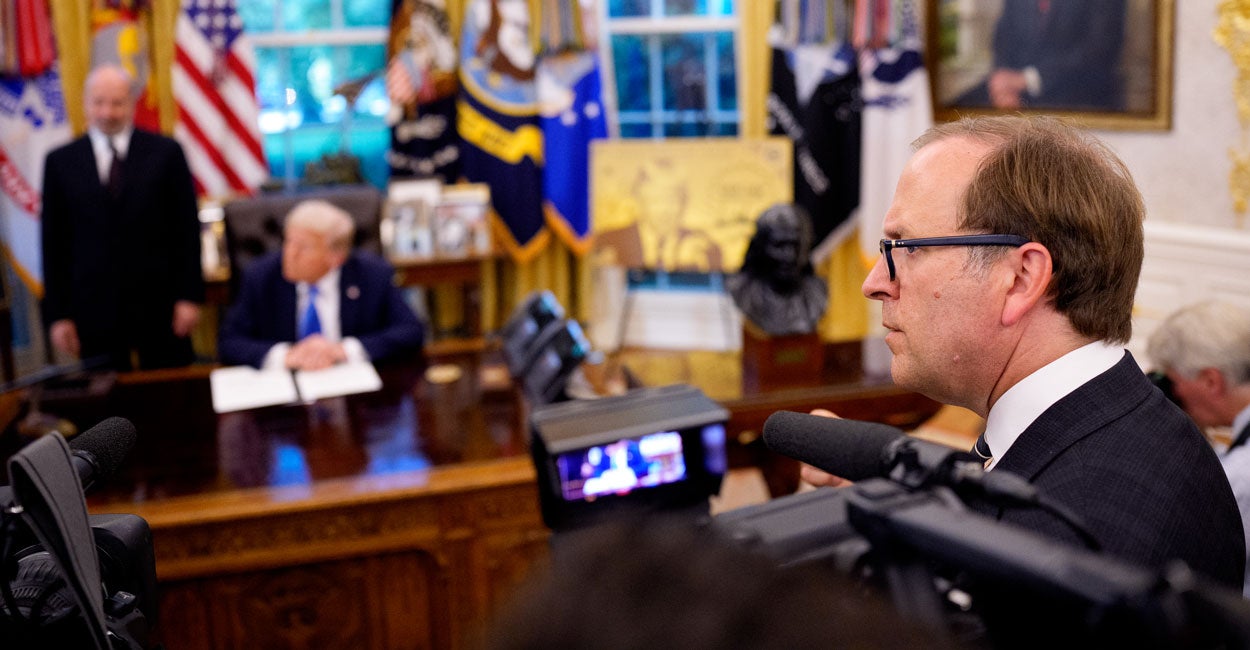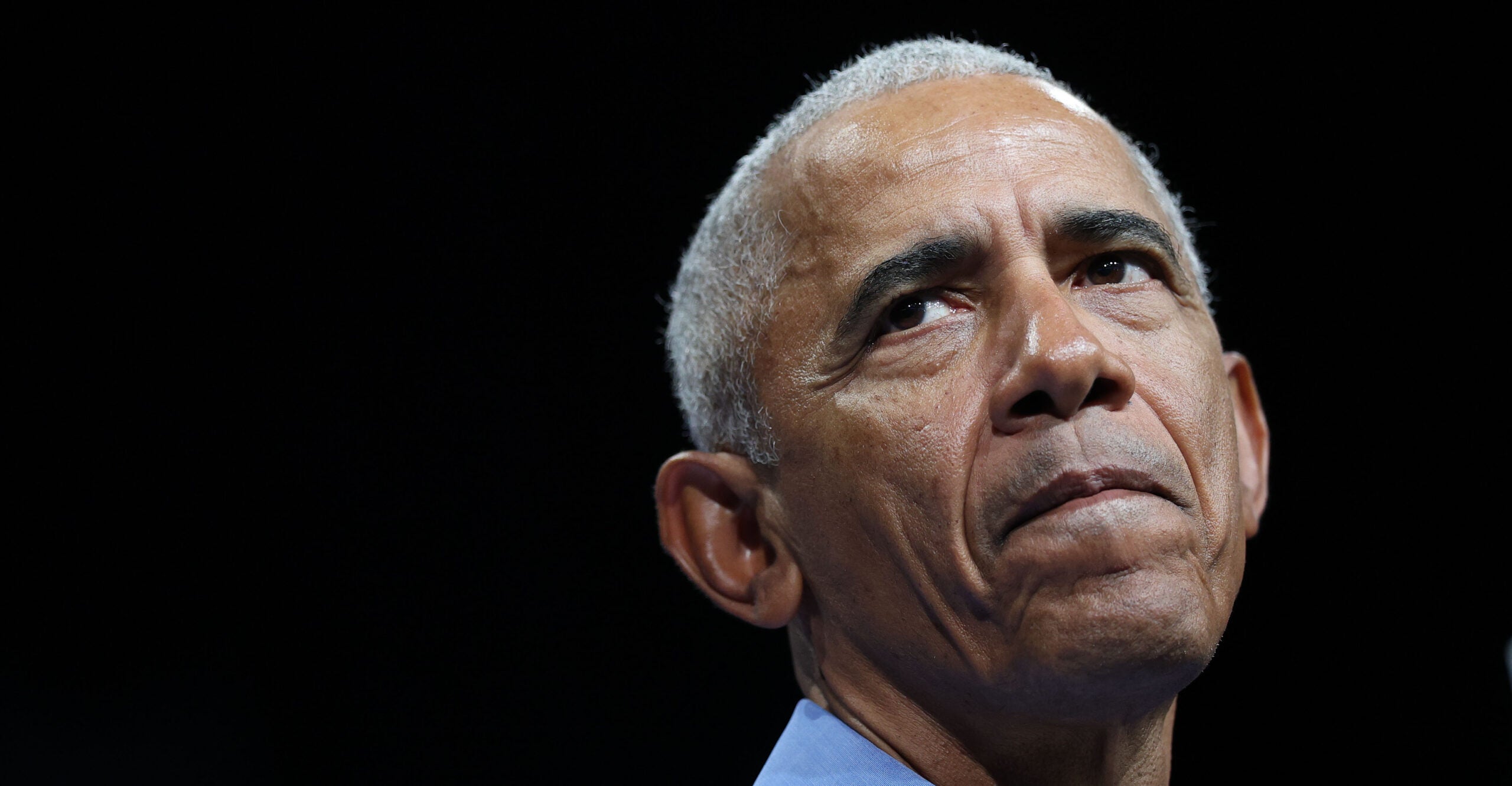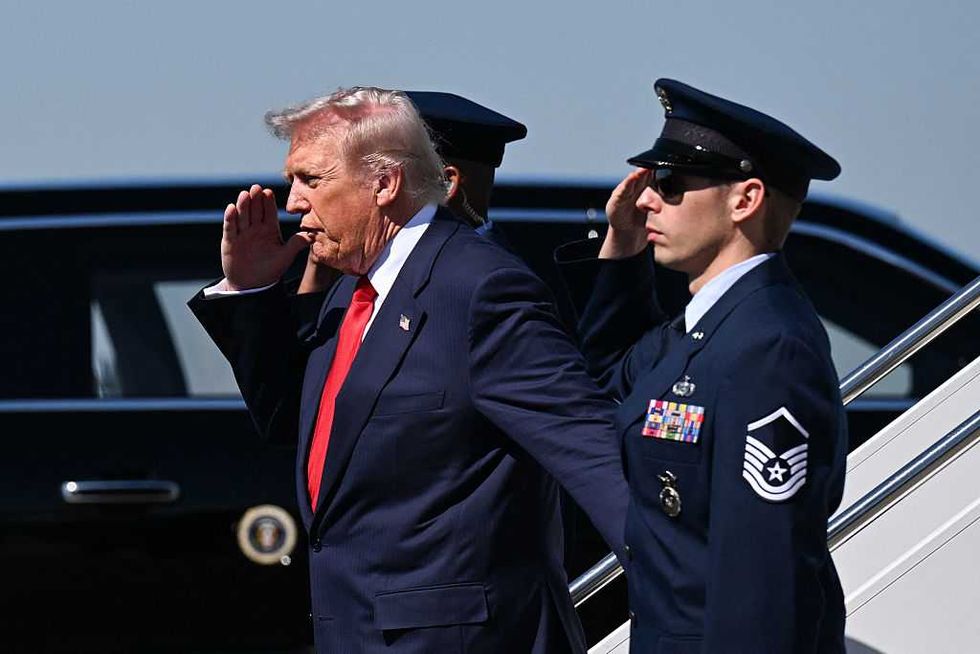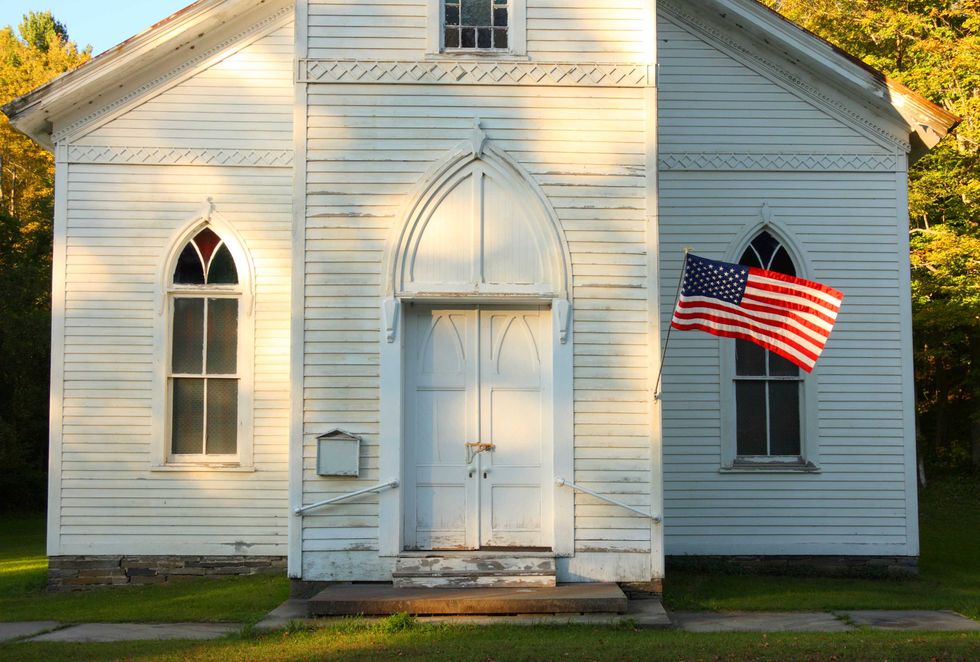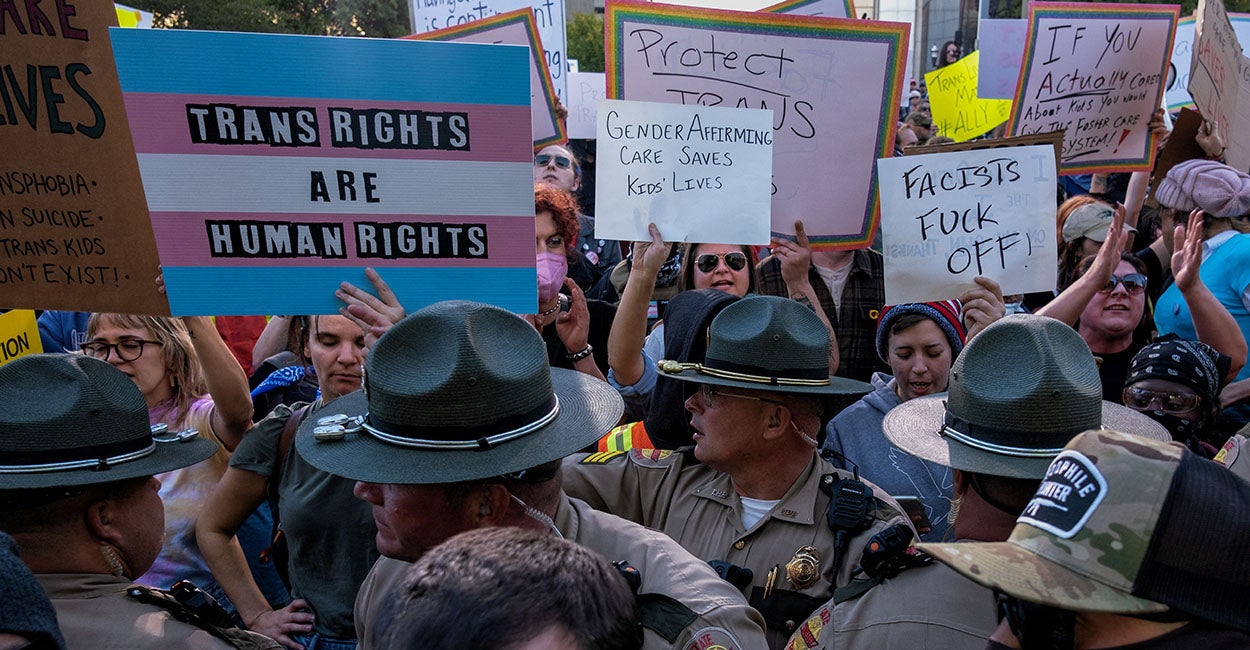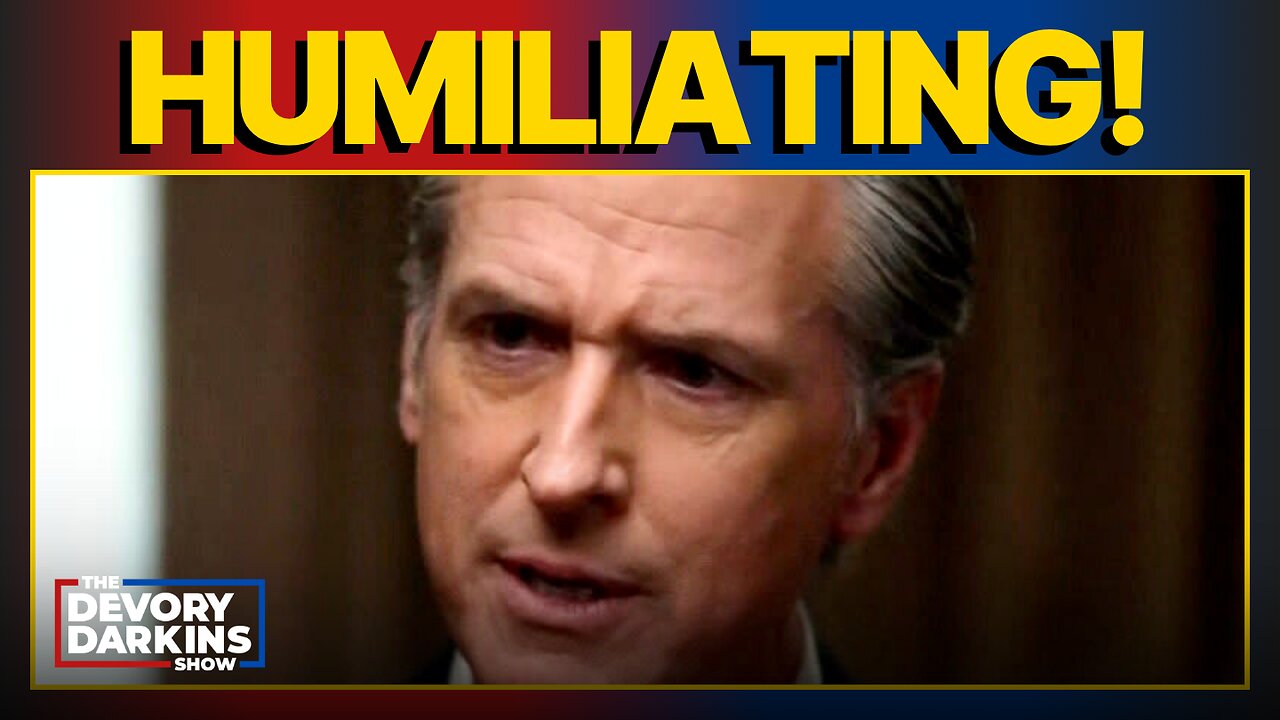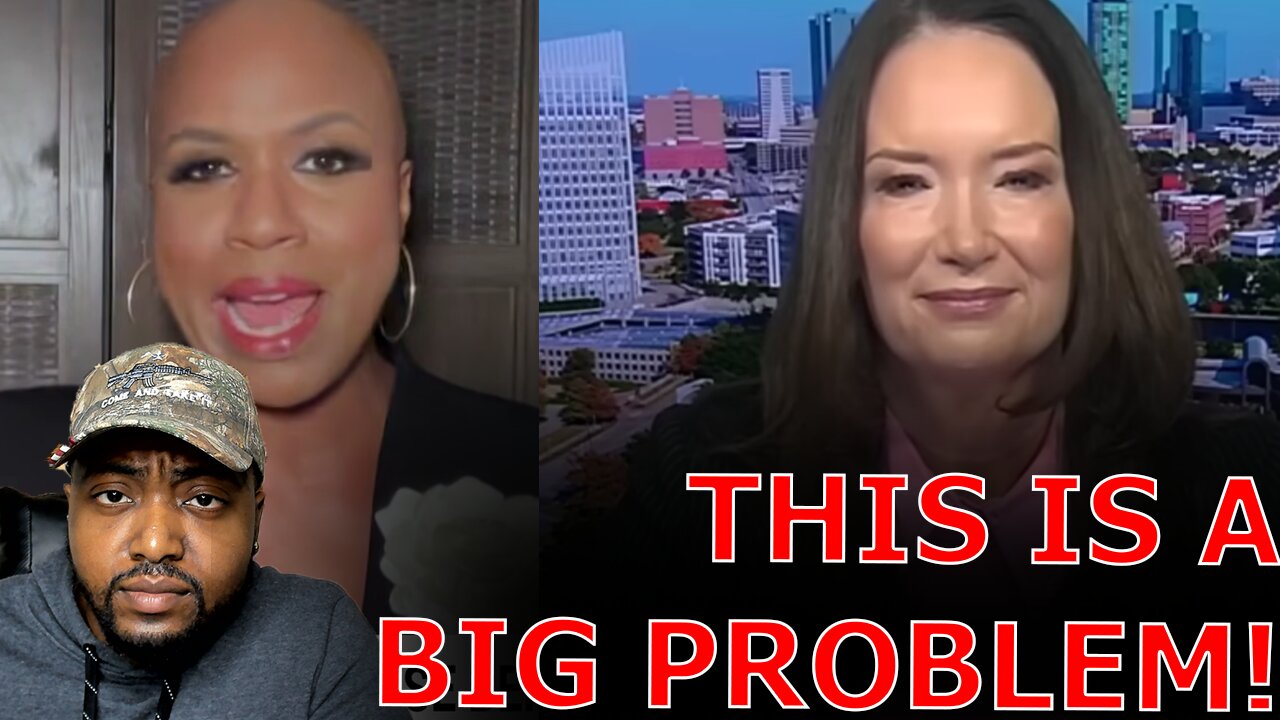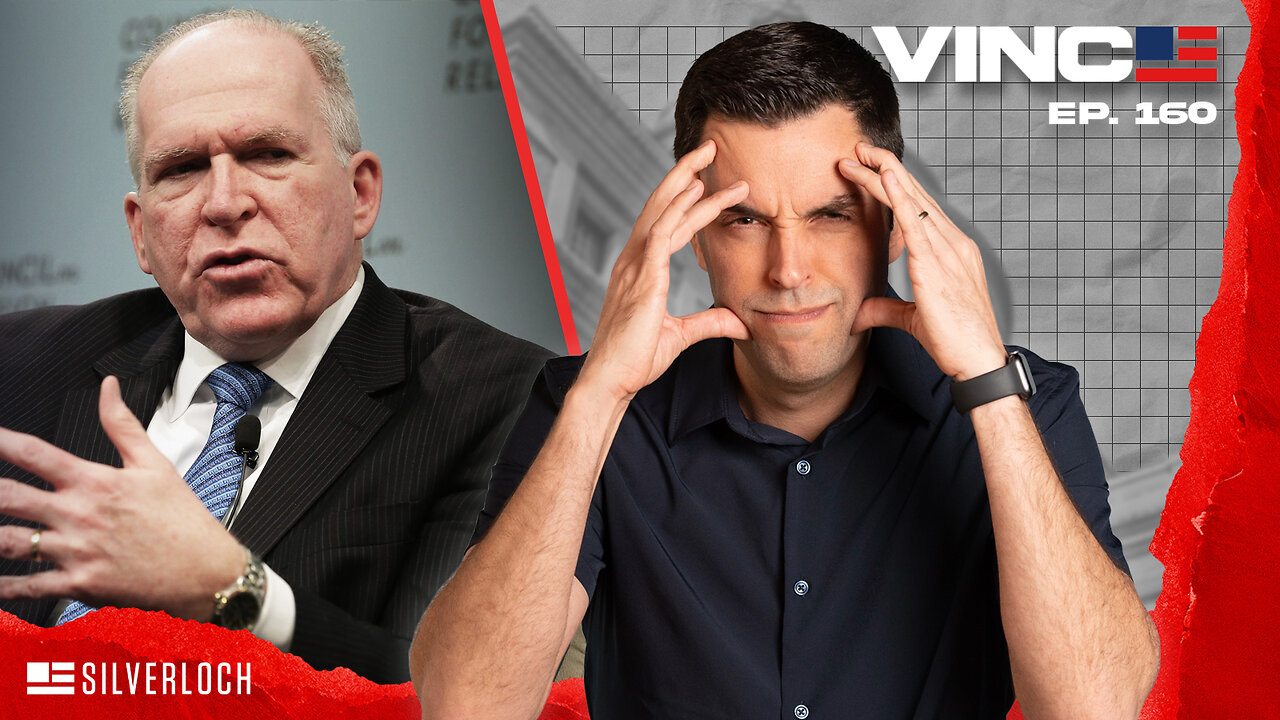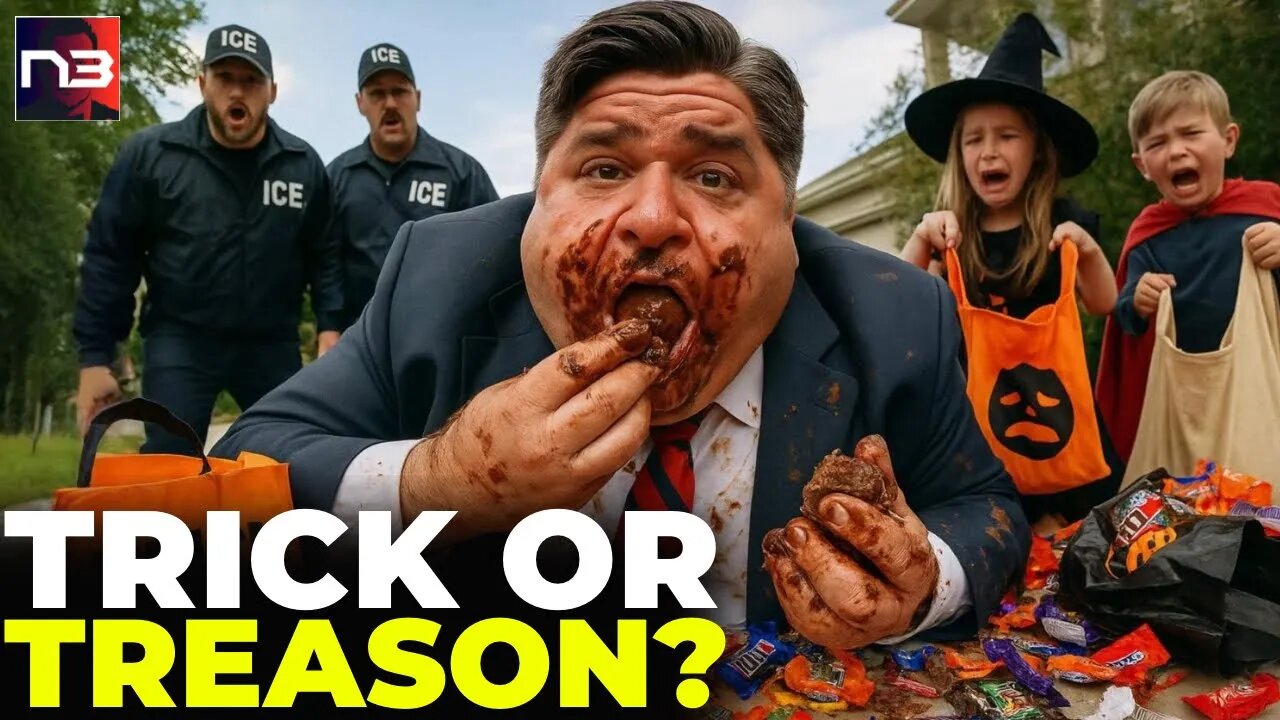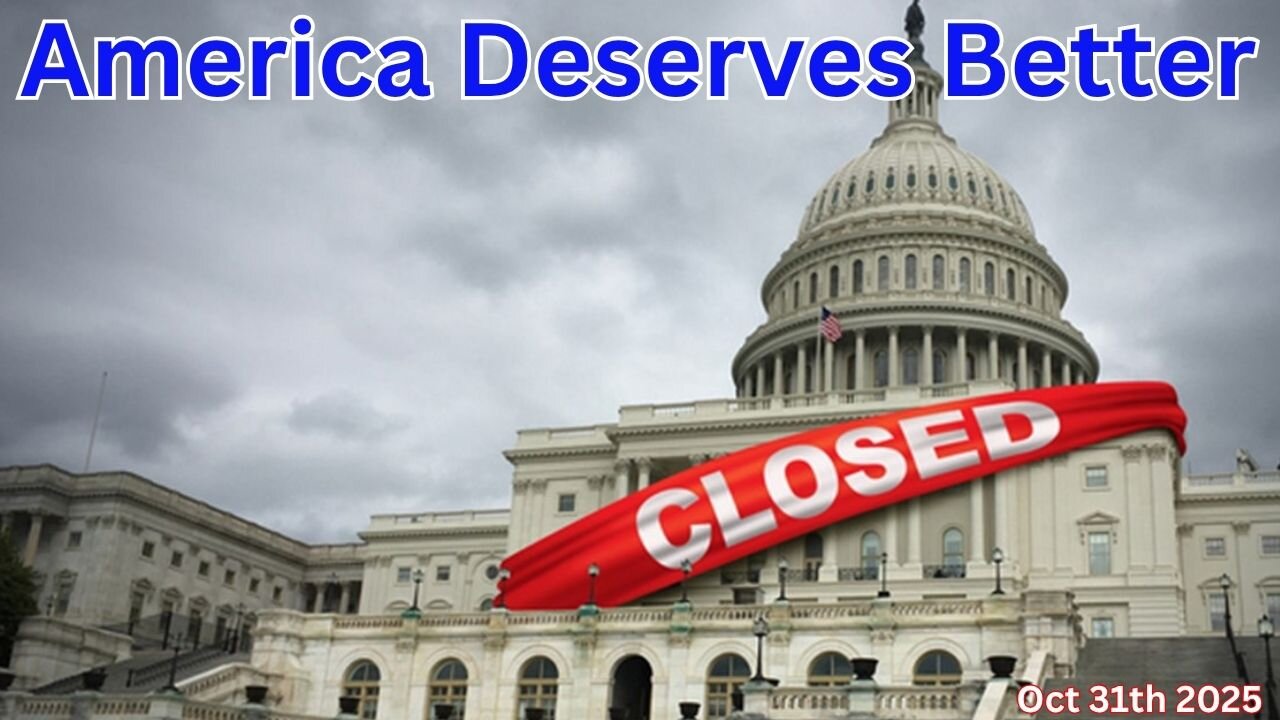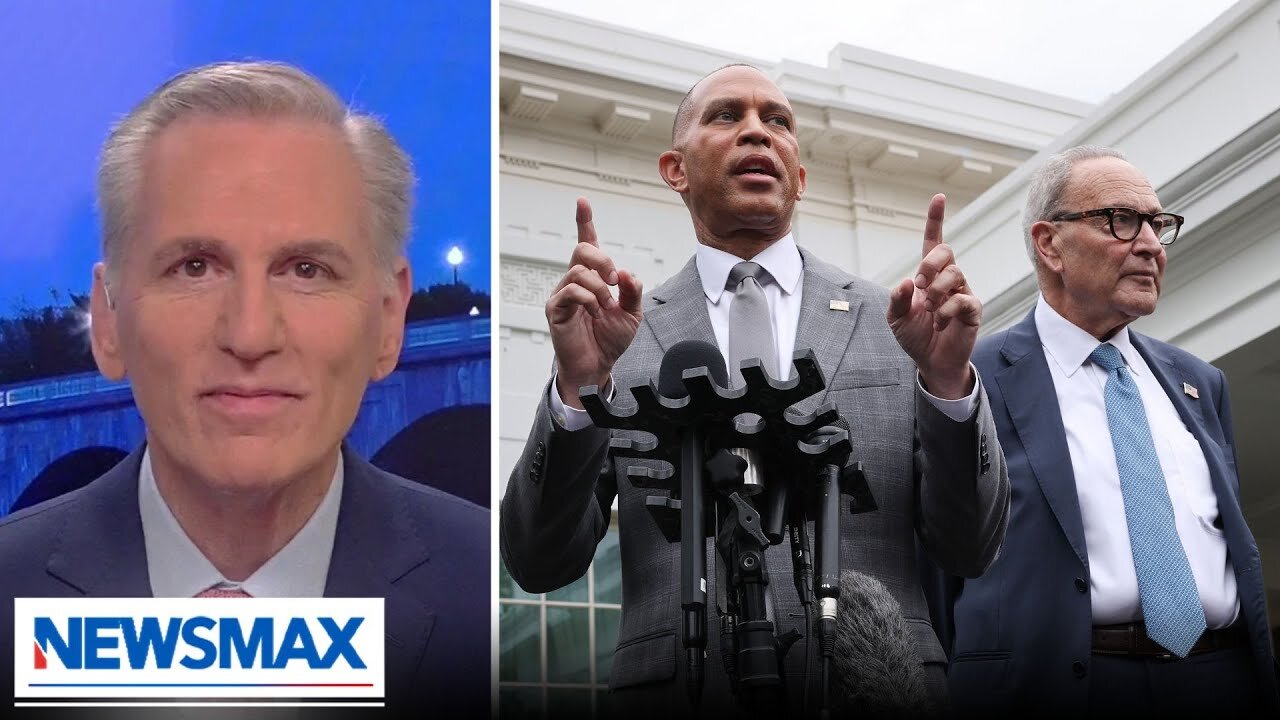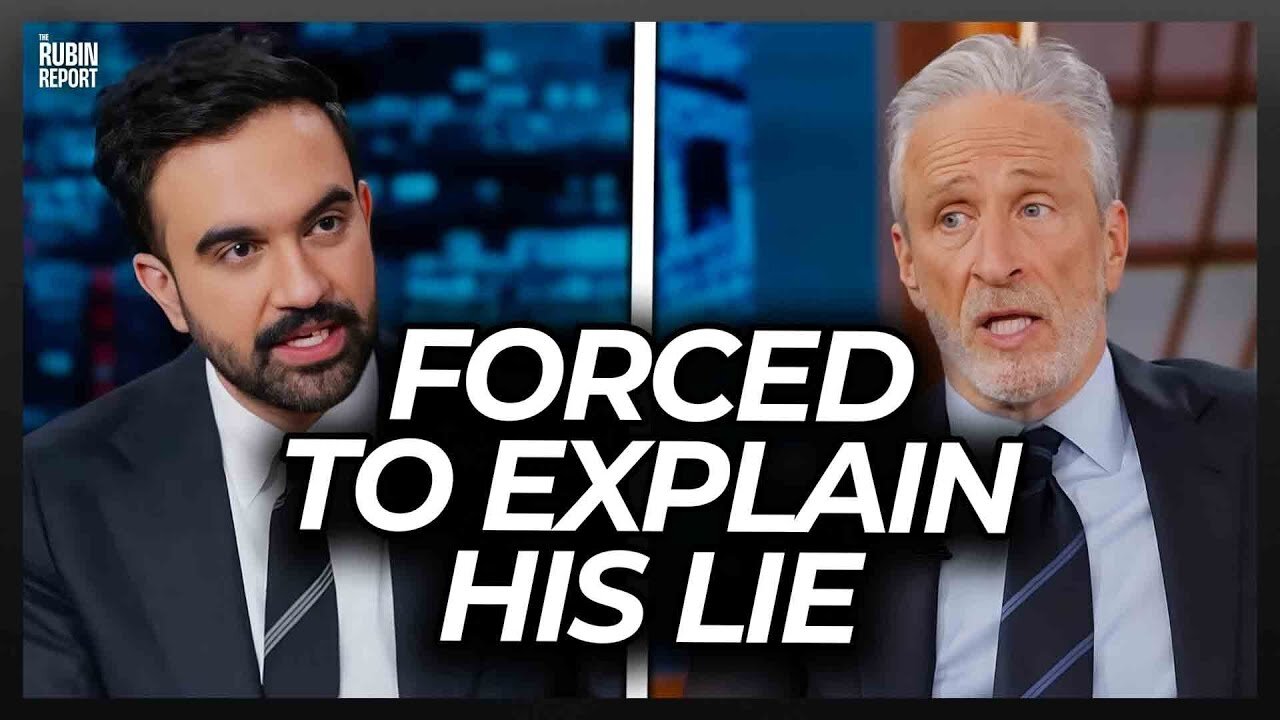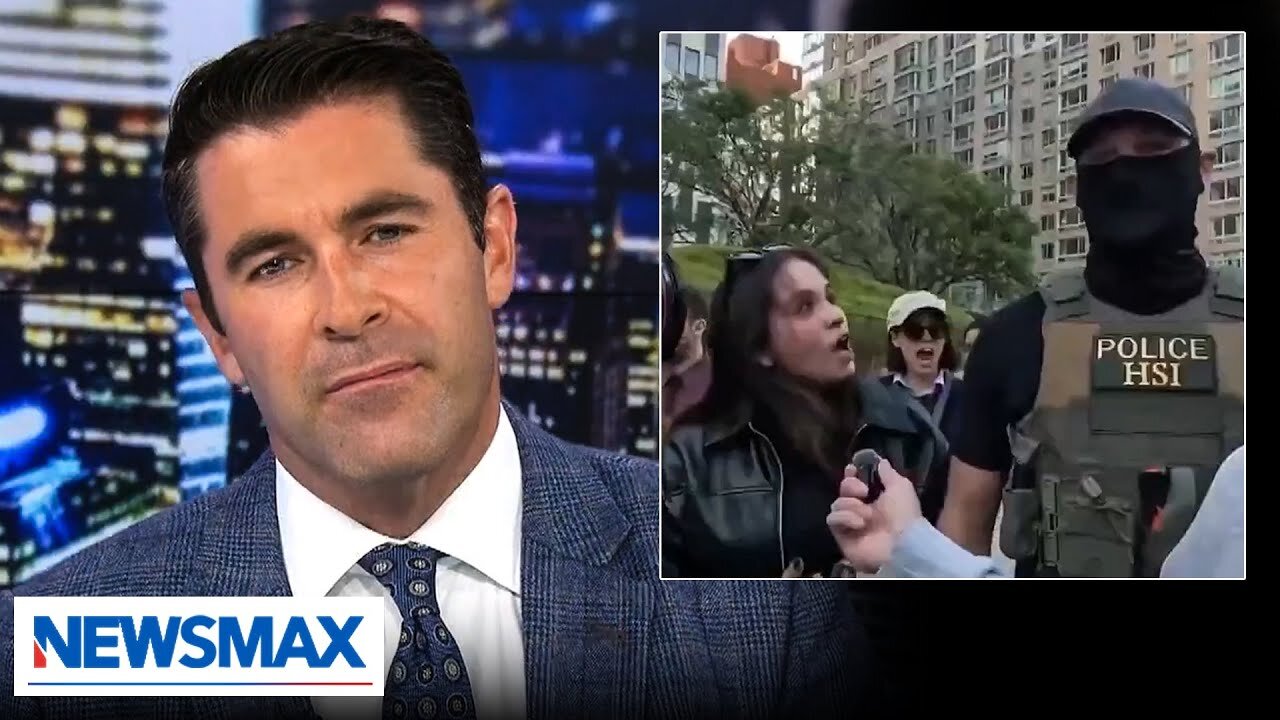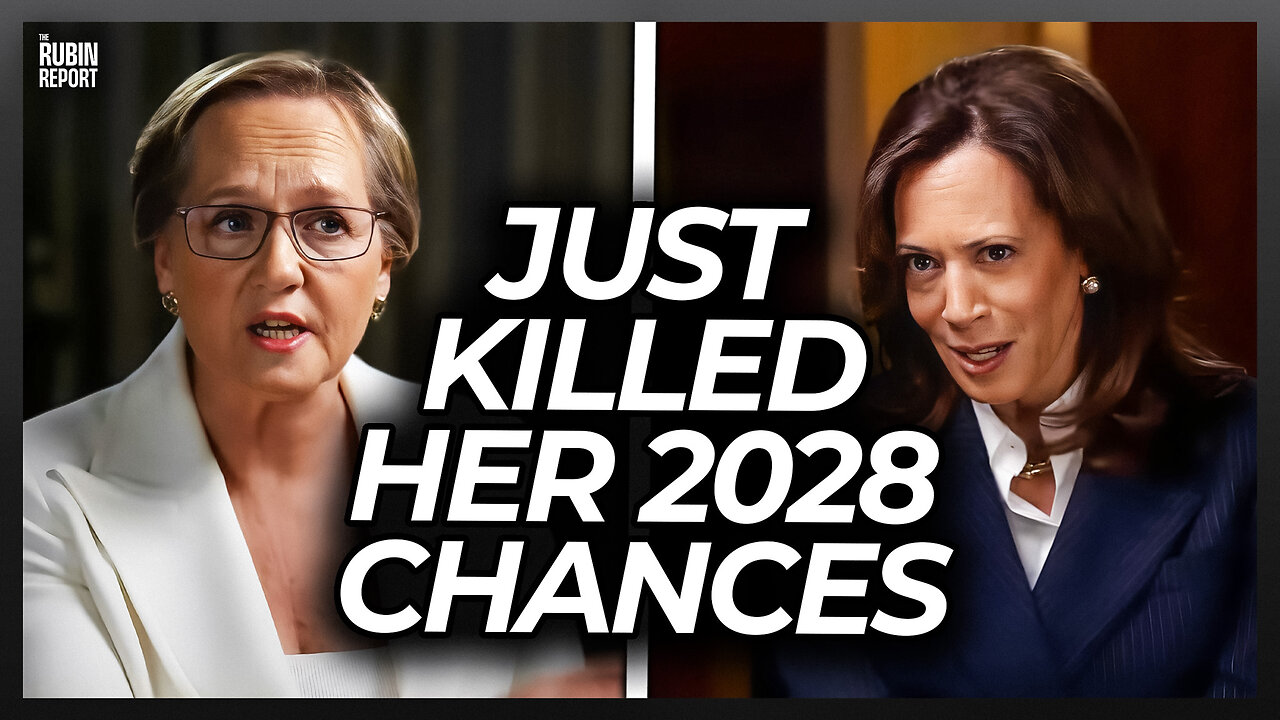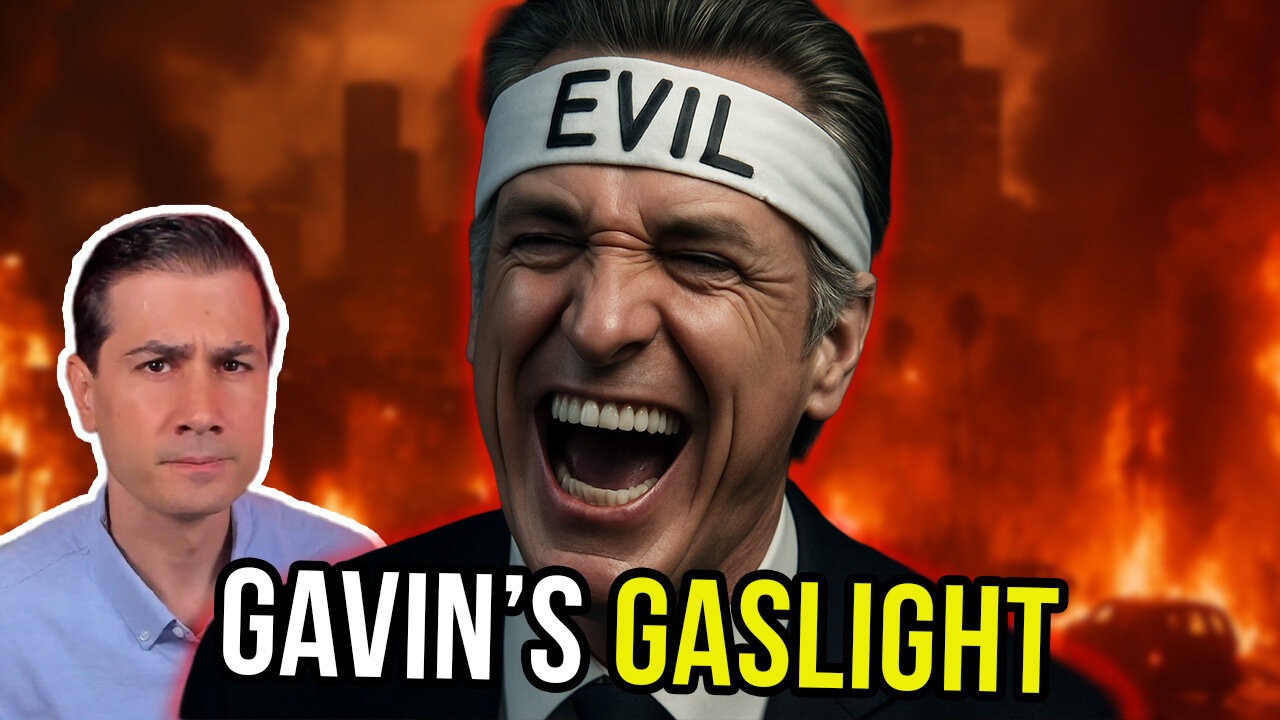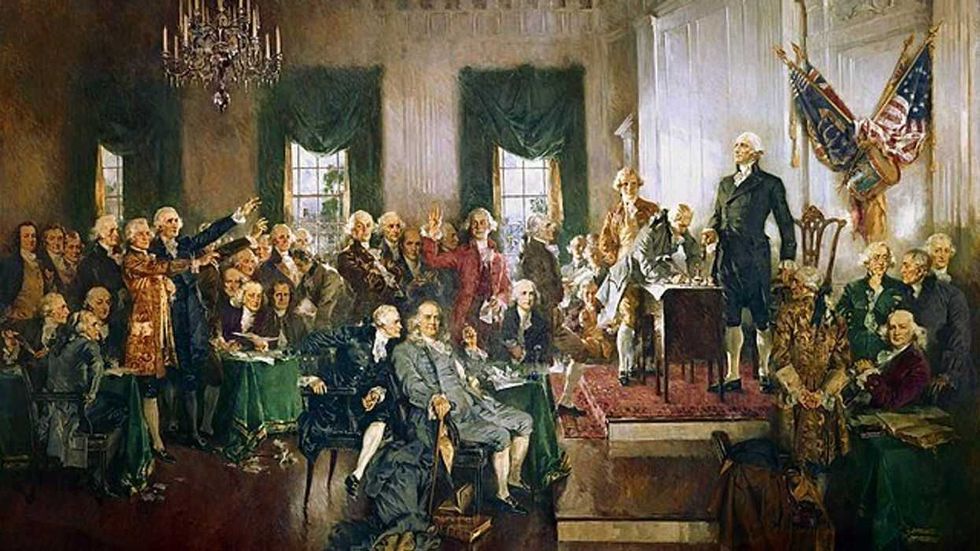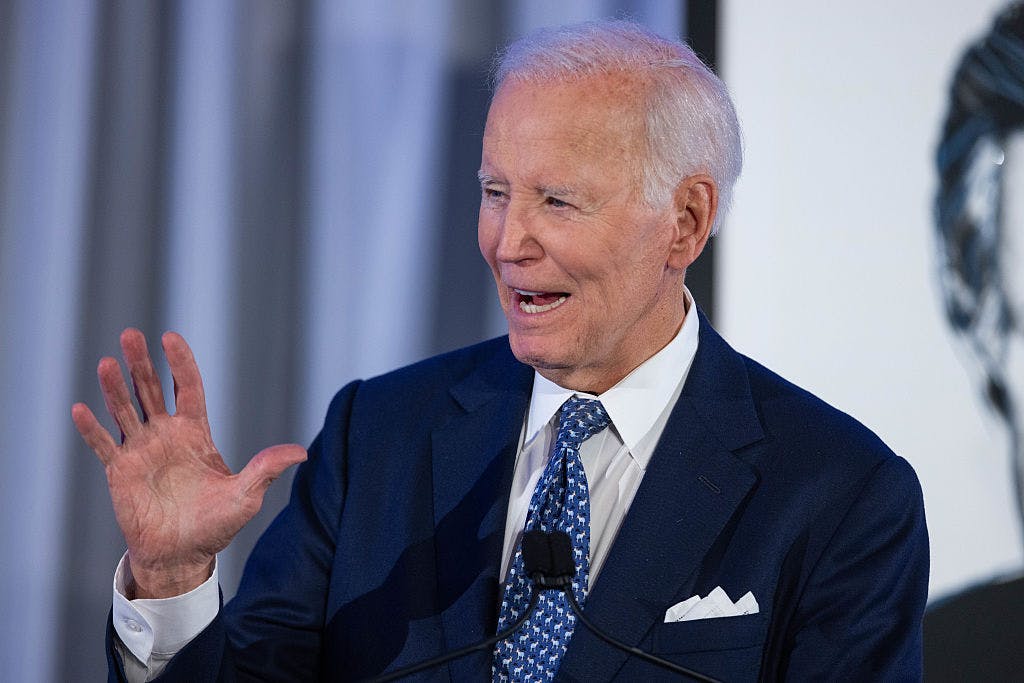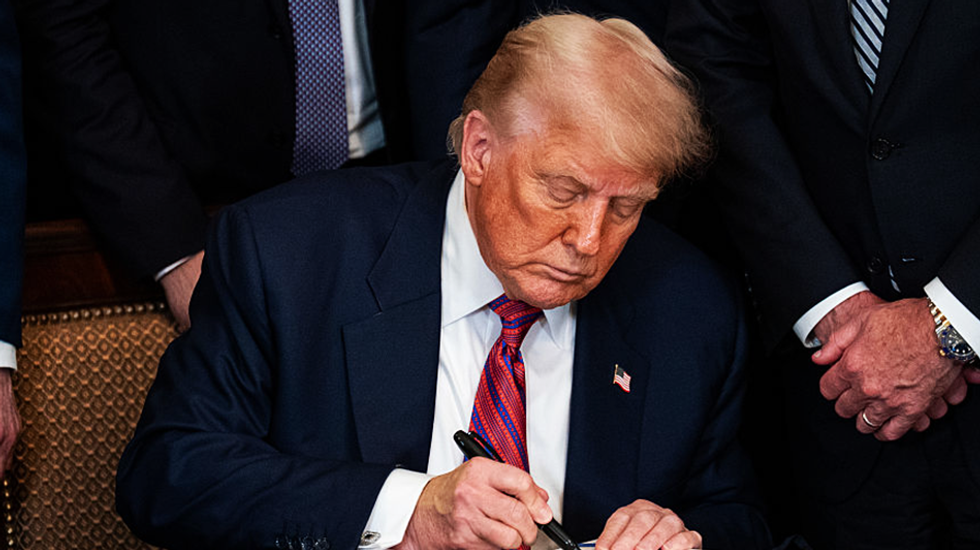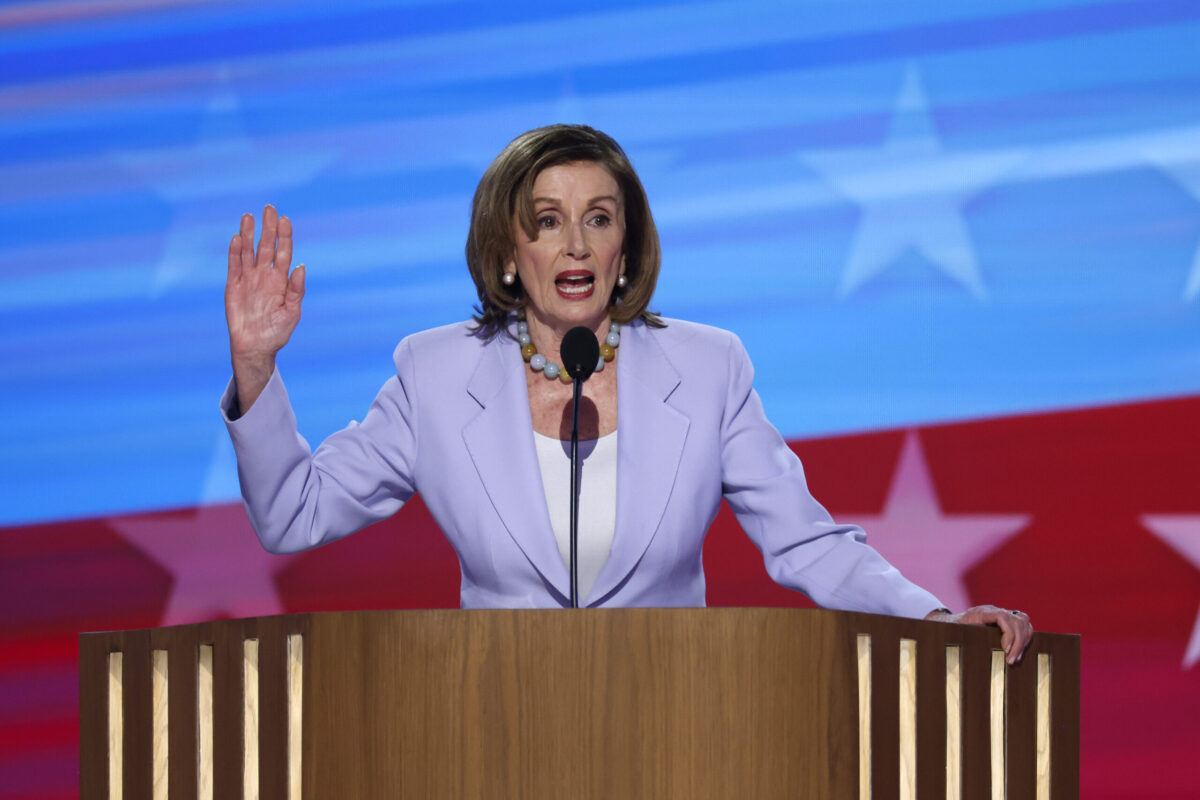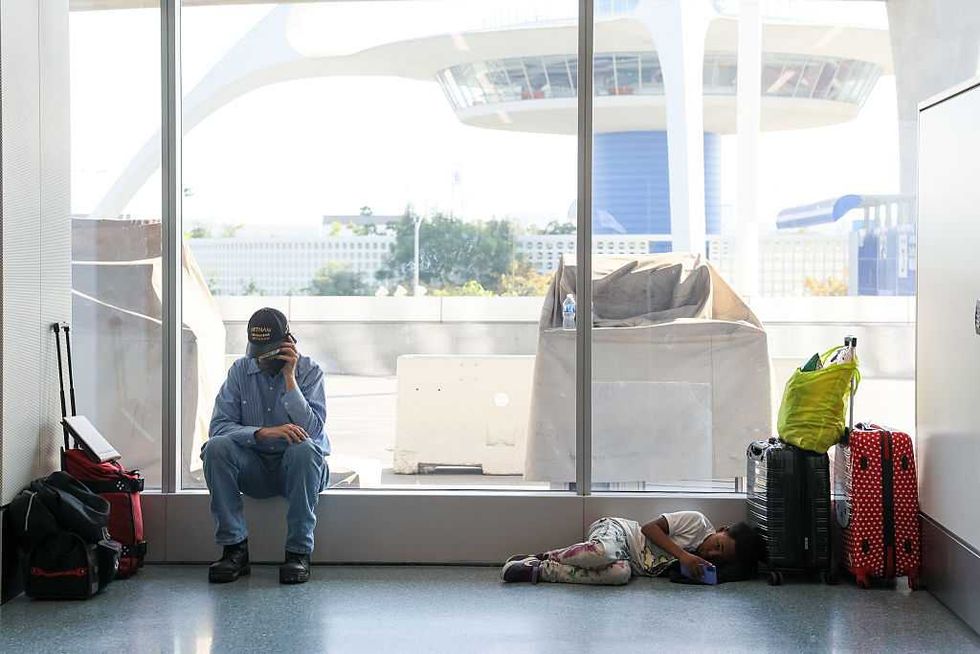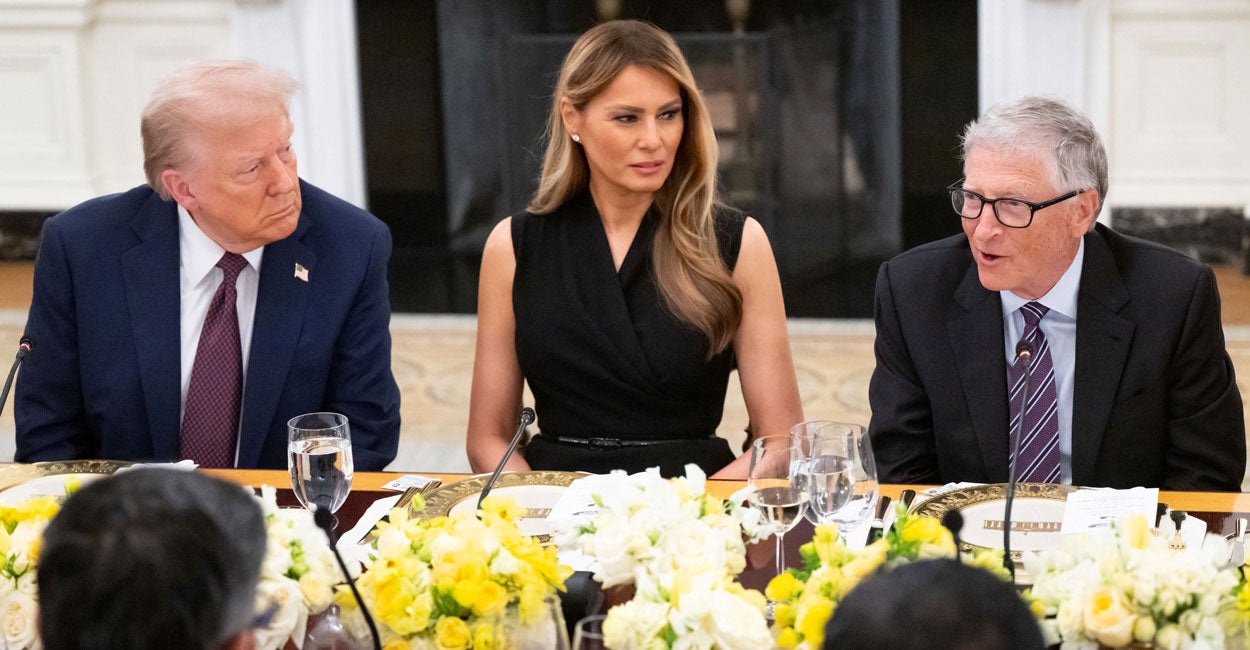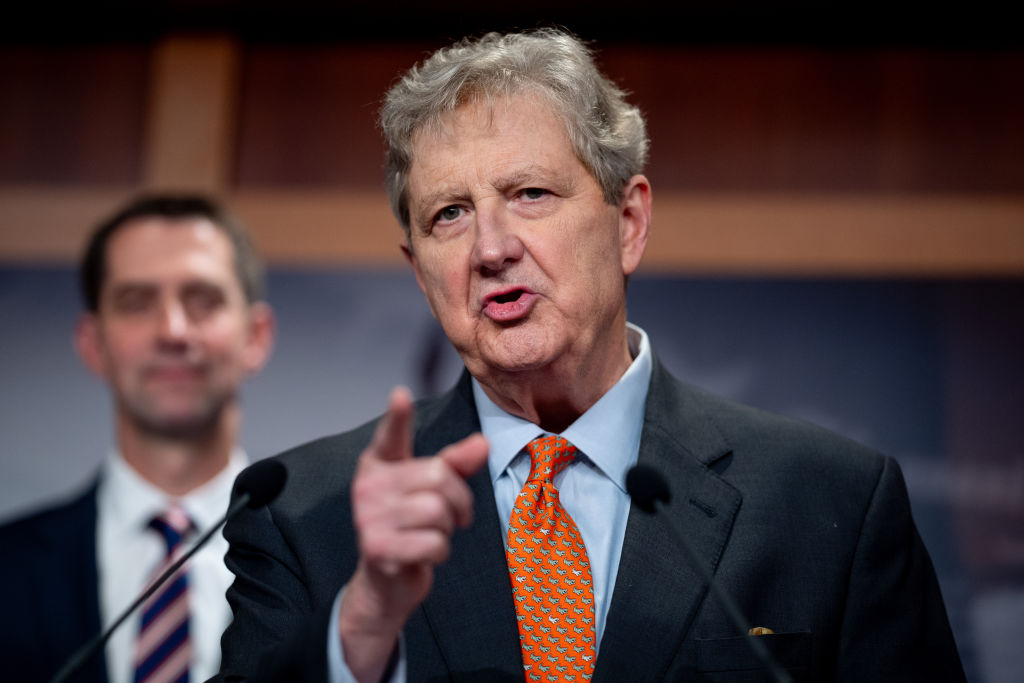Thank a Cop This Police Week
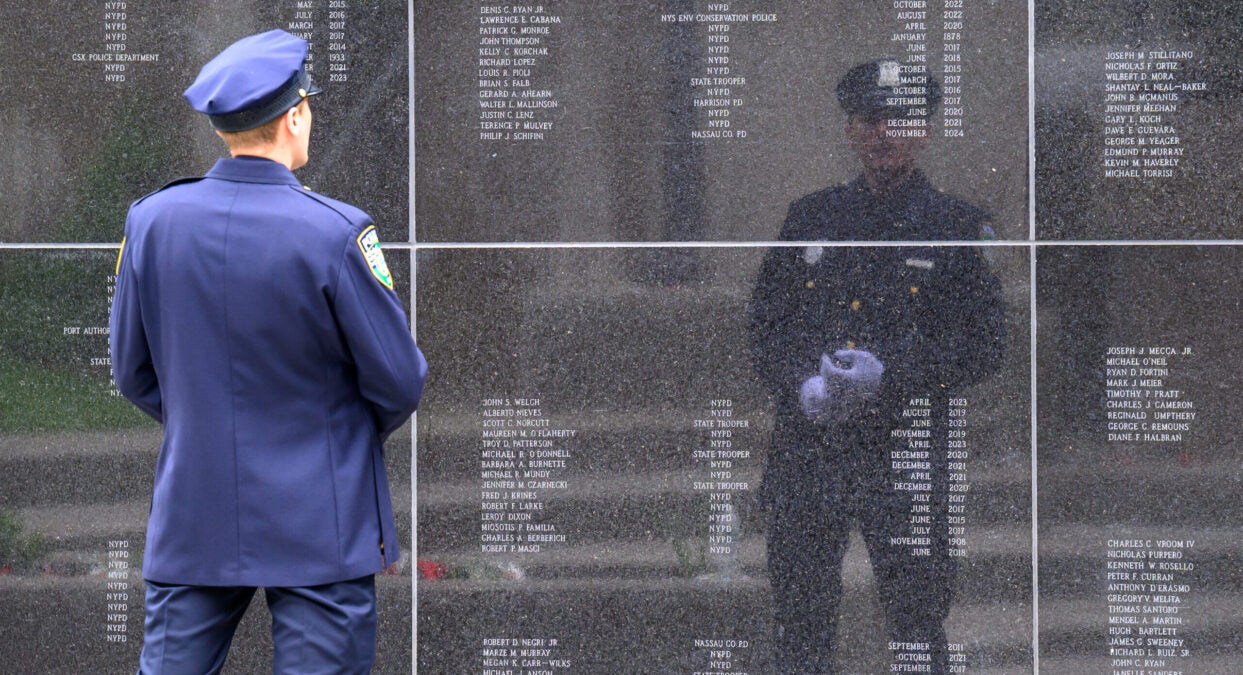
Last year, 147 law enforcement officers died in the line of duty in the United States, an increase of 25% from 2023.
Their names will be added this week to the 24,067 names of officers inscribed on the marble walls at the National Law Enforcement Officer’s Memorial in Washington, D.C.
As we pause to celebrate National Police Week, and Peace Officer’s Memorial Day on May 15, it’s worth recalling how this tradition started, and how, sadly, disrespect shown by some so-called “progressives” toward law enforcement officers has undermined their credibility, endangered their lives, and made it more difficult for police departments across the country to recruit and retain top candidates.
Congress and President Kennedy
On June 21, 1961, Congress passed a joint resolution designating the week of May 13-19, 1962, as Police Week. The resolution authorized the President to “proclaim May 15 of each year as Peace Officers Memorial Day” and that week Police Week.
The resolution praised police officers who “worked devotedly and selflessly … regardless of the peril or hazard to themselves,” noted that “officers have safeguarded the lives and property of their fellow Americans,” remarked that by enforcing our laws, police officers “have given our country internal freedom from fear of the violence and civil disorder affecting other nations,” and as such “have earned the gratitude of the Republic.”
In his proclamation of April 10, 1962, about Police Week and Peace Officers Memorial Day, President John Kennedy noted that “law enforcement agencies play an essential role in safeguarding the rights and freedoms … to every American citizen.” Law enforcement agencies, proclaimed Kennedy, “recognize their duty to serve the people … by protecting the innocent against deception and the weak against oppression or intimidation.”
Kennedy called upon “the people of the United States, and upon all patriotic, civic, and educational organizations to observe the week of May 13-19, 1962, as Police Week with appropriate ceremonies” to commemorate police officers, “past and present,” for their faithful and “loyal devotion to their responsibilities.”
Every president since Kennedy has recognized Police Week and Peace Officers Memorial Day in one fashion or another.
Law Enforcement Key to Civil Society
There are approximately 18,000 police departments across the country, over 3,000 elected sheriffs, about 13,700 FBI special agents, totaling over 750,000 sworn peace officers at the local, state, federal, and military levels.
Those numbers do not include the tens of thousands of law enforcement-related professionals who work as correctional officers at the local, state, federal, and military levels, crime lab employees, administrative support personnel, forensic analysts, and myriad others who perform ancillary but important support roles in law enforcement.
Approximately 90% of crimes are investigated and prosecuted at the local level by one of the 2,300 elected district attorneys across the 3,143 counties in the United States. The federal government handles the remaining 10% of crimes across the country, and those cases are prosecuted by one of the 93 United States Attorney’s Offices or by the Department of Justice in Washington, D.C.
Ensuring law and order and the equal enforcement of state and federal criminal law are necessary prerequisites for a properly functioning society, safe communities, thriving inner cities, and overall public safety. Without adequate financial support, law enforcement cannot safeguard “the rights and freedoms” of every American citizen.
How Soros Rogue Prosecutors Endanger Law Enforcement
The George Soros-funded and inspired “progressive” prosecutor, which we have dubbed the “rogue prosecutor” movement, has been, next to the defund the police movement, the greatest threat to law enforcement in recent memory.
Started in 2016 with the election of Cook County State’s Attorney Kim Foxx, the movement’s goal is to “reverse engineer and dismantle” the criminal justice system by replacing law-and-order prosecutors with pro-criminal, anti-victim, cop-hating prosecutors. Currently, their number includes approximately 70+ elected prosecutors nationwide.
Once elected to office, these rogues publish radical policies and force the prosecutors in their office to follow them.
As you read the list below of the common policies shared by these rogues, ask yourself these two simple questions:
- Does this policy help drive down crime?
- Does this policy support law enforcement?
At the risk of spoiling the punch line, the answer to both questions in each instance is a big fat “no.”
Their policies include:
- Refuse to prosecute most misdemeanors
- Water down most felonies to low-level felonies or misdemeanors
- Disallow violent juveniles from being prosecuted as an adult
- Refuse to allow prosecutors to add sentencing enhancements or allegations to increase the sentence
- Don’t ask for cash bail
- Disallow charges that would have adverse immigration consequences
- Disallow prosecutors to attend parole hearings
Crime rates in cities with rogue prosecutors have generally skyrocketed, making the job of police officers in those jurisdictions more difficult and dangerous.
To top it off, one of the most dangerous policies to law enforcement is the one that prohibits prosecutors from filing the charge against anyone who resists arrest by a police officer.
This policy not only sends a clear message to scofflaws in the community that it is perfectly acceptable to resist arrest, but it also sends an equally noxious message to law enforcement that the local prosecutor doesn’t give a damn about their safety.
The cumulative effect of the defund the police movement, combined with the Soros-backed rogue prosecutor movement, has directly impacted the ability of police departments to retain officers and recruit new ones, and has, understandably, affected morale.
What You Can Do About It
Two years after the terrorist attacks of 9/11, President George W. Bush issued a proclamation on the occasion of Peace Officers Memorial Day and Police Week.
There, Bush wrote:
As we honor these fallen heroes, we should also resolve to support all law enforcement officers by becoming active in the fight against crime. Strong communities and neighborhoods help deter crime.
Bush was correct. We all play a part in strong communities. Law enforcement officers play a vital role in keeping our communities, our businesses, our families, and our country safe.
So, this week, when you see a law enforcement officer, thank him or her for serving the community and upholding the rule of law. And take a moment and think about the lives lost in the line of duty. They gave their lives trying to protect us.
The post Thank a Cop This Police Week appeared first on The Daily Signal.
Originally Published at Daily Wire, Daily Signal, or The Blaze
What's Your Reaction?
 Like
0
Like
0
 Dislike
0
Dislike
0
 Love
0
Love
0
 Funny
0
Funny
0
 Angry
0
Angry
0
 Sad
0
Sad
0
 Wow
0
Wow
0
